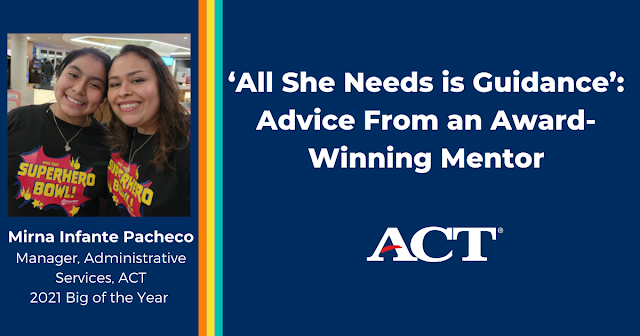By: Tina Gridiron, vice president, ACT’s Center for Equity in Learning
Postsecondary credits earned outside the college classroom play an important but often overlooked role for students seeking to reduce their time to degree. Transferring credits from different sources can help students save valuable time and money on the road to postsecondary completion. However, the various processes for evaluating and formally recognizing these credits – known as credit for prior learning (CPL), prior learning assessment (PLA), recognition of learning, or experiential learning – can be difficult for students to navigate, especially students of color and those from low-income backgrounds.
That is where organizations like the
Council for Adult and Experiential Learning (CAEL) and
Complete College America come in. These organizations advise on how to help students get the most out of their prior learning, which is evaluated in different ways by different institutions, and even by different departments within the same institution.
“Credit for prior learning provides multiple ways for colleges to recognize what students already know and the skills they possess, whether that comes from prior high school coursework, military experience, or on-the-job training,” said Yolanda Watson Spiva, president of Complete College America. “Lived experience matters! We all gain valuable learning from multiple ways both inside and outside of the classroom. Students shouldn’t have to take classes for what they already know.”
Credit can also be awarded for independent study, non-credit courses, volunteer or community services, and non-college courses or seminars. Students can show their skills and abilities through different ways, including portfolios, exams, certifications, and evaluations.
In one example, the American Council on Education (ACE)
recommends that institutions award up to six credits to students who earn the ACT WorkKeys
National Career Readiness Certificate (NCRC) at certain levels by completing and ranking scores in the Applied Math, Graphic Literacy, and Workplace
Documents
WorkKeys assessments. The NCRC is a stackable credential indicative of the recipient’s possession of skills that employers want, such as the ability to solve technical problems, identify data trends, and sort through materials to find critical information. When an institution awards credit for the WorkKeys NCRC, it is not just accelerating students’ progress but also building their confidence.
In a
2020 study of 72 postsecondary institutions, CAEL and the Western Interstate Commission for Higher Education (WICHE) found that credit for prior learning boosted adult students’ completion rates by 17%. These students earned an average of 15 CPL credits, saving them up to a year or more in time to degree and anywhere from $1,500 to $10,200.
However, just 11% of entering adult students earned any credit for prior learning. And among those who did, CAEL uncovered an “
equity paradox”: Students with lower incomes and Black students were the least likely to have these credits – even though they delivered a large “boost to completion.” Fifty-five percent of Pell Grant recipients and 40% of Black students with CPL credits completed a credential, compared with 27% of Pell recipients and 17% of Black students without CPL credits. In fact, Black students benefited the most from these credits.
“Institutions should focus more intentionally on improving credit-for-prior-learning usage among Black and lower-income students,” said Chris Guidry, vice president for community affairs at CAEL. “Unfortunately, from our experience, it can be challenging and frustrating for adult learners to navigate CPL systems at institutions.”
Along with Black students and Pell recipients, female and American Indian/Alaska Native students were least likely to have CPL credits, according to the study.
CAEL’s more than
3,300 members demonstrate that the institutions that are most successful at awarding credit for prior learning pay close attention to adult students’ needs, Guidry said. They encourage faculty and staff to collaborate to create “student-friendly” CPL policies while maintaining academic rigor, and frequently establish relationships with employers to link work experience and job training to CPL programs.
Spiva said there are a number of steps colleges and universities can take to strengthen their prior learning assessment – first and foremost, eliminating institutional silos and integrating the program across different areas.
“This means having institutional policies combined with practices to support credit for prior learning,” she said. “For example, a college can specify the different methods that students have to assess their learning, the associated costs, the support that is offered by the institution in the process, and limitations to either degrees or transfer for the number of credits that may be earned.”
Colleges should also more frequently and widely market the opportunities for students to earn credit for prior learning, Spiva said. Proactive communication is also essential, as many students arrive at college without even knowing that prior learning assessment exists. They can be made aware through orientations, advising sessions, department and faculty outreach, websites, and other campus communications.
Lack of information is a top obstacle to accessing credit for prior learning, according to a
WICHE survey of undergraduate students. Despite the opaqueness, an
ACE survey of learners, conducted to support a new network of colleges focused on improving CPL, found that transfer credit acceptance is “just as important a factor” as tuition when choosing a college program.
As
college completion rates stagnate, student debt escalates, and calls intensify to get learners with some college but no degree across the finish line, credit for prior learning is an important tool for helping all students reach their postsecondary goals.


.png)
.png)
.png)

